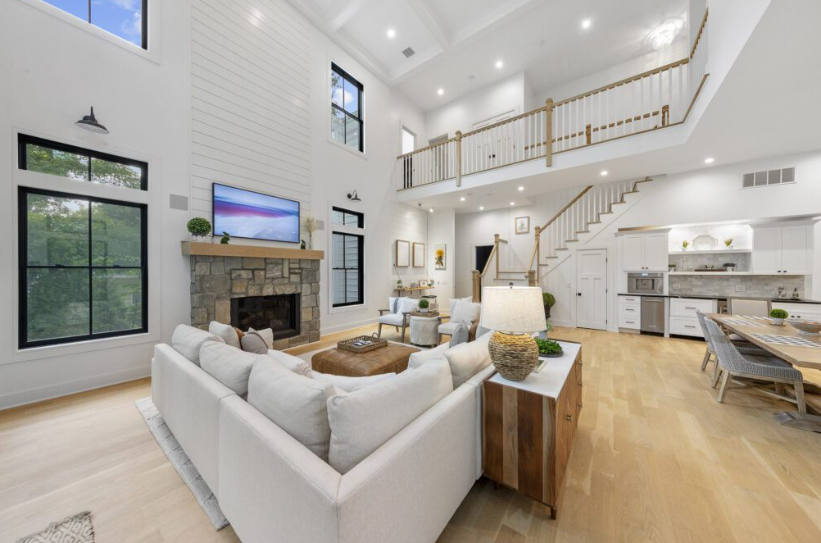
Custom Home Builder Guide Tips for a Seamless Construction Experience
A custom home builder specializes in designing and constructing homes tailored to the specific needs and preferences of the client. They manage the entire process, from initial design concepts to the final build, ensuring the home reflects the owner’s vision and lifestyle. This approach contrasts with standard home building, where buyers choose from pre-designed floor plans with limited customization.
Custom builders often offer flexibility in materials, layout, and finishes, working closely with clients to address their unique requirements. Some builders provide an integrated service, handling architecture, engineering, and construction, while others allow clients to take a more hands-on role. This personalized experience appeals to those who want a home that stands apart from typical developments.
Custom Home Builder Services
Custom home builders provide a range of services that cover every critical phase of creating a personalized home. These services involve detailed planning, evaluating the construction site, and managing the building process for quality and efficiency.
Design Consultation
Design consultation is the foundational step where builders work closely with clients to translate their needs and style preferences into a practical home design. This phase includes discussing architectural styles, floor plans, materials, and specific features like energy efficiency or smart home technology.
Builders use 3D renderings or models to help clients visualize the final product. Adjustments to layouts and finishes are made to ensure functionality aligns with the client’s lifestyle. This process aims to provide clarity and set realistic expectations on cost, timeline, and design feasibility.
Site Selection and Evaluation
Choosing and evaluating the site is crucial for a custom-built home. Builders assess soil quality, slope, drainage, and local zoning laws to determine the best location on the property. They also consider natural light, views, and access to utilities, optimizing the site to improve structural integrity and living comfort.
This evaluation uncovers potential challenges early, such as the need for excavation or additional foundation work. Selecting the right site minimizes delays and unexpected costs during construction, ensuring that the build proceeds smoothly.
Construction Management
Construction management involves overseeing the entire building process from groundbreaking to final inspection. The builder coordinates scheduling, subcontractors, material deliveries, and inspections to maintain timelines and quality standards.
Regular updates and site visits ensure transparent communication with clients. Builders also handle permits, compliance with local codes, and any changes requested during construction. This management approach reduces risks and helps deliver a home that meets design specifications and quality expectations.
Choosing the Right Custom Home Builder
Selecting a custom home builder involves evaluating their qualifications, managing clear contracts and budgets, and understanding the project timeline. Each factor directly impacts the quality, cost, and completion of the home.
Key Qualifications to Look For
A builder’s experience and reputation are fundamental. They should have a proven track record of completed projects similar in scope and style to the client’s vision. Checking references and visiting previous builds offers insight into craftsmanship and reliability.
Licensing and insurance are non-negotiable. This protects the homeowner from liabilities and ensures compliance with local building codes. Transparency regarding the quality of materials used is also essential, as it affects durability and overall value.
Effective communication skills and responsiveness are critical. A builder who clearly explains processes, updates regularly, and addresses concerns promptly supports a smoother build experience.
Contract and Budget Planning
The contract must clearly define the scope of work, payment schedule, materials to be used, and warranty terms. Ambiguous language or missing details can lead to disputes and unexpected costs.
Budgeting should account for all foreseeable expenses, including permits, materials, labor, and contingencies. A detailed estimate with itemized costs helps avoid surprises later in the project.
Homeowners should ensure the contract includes clauses for handling change orders and delays, specifying how adjustments to budget or timeline will be managed and approved.
See also: Why Businesses Should Train Employees to Use WhatsApp Page
Project Timeline Considerations
An accurate timeline reflects realistic start and completion dates, factoring in permits, inspections, and potential weather delays. The builder should provide a detailed schedule broken down by construction phases.
Regular progress updates keep the homeowner informed and allow for timely decisions. A builder’s ability to manage subcontractors and adhere to scheduled milestones directly affects the home’s delivery.
It’s important to understand how the builder addresses delays. Clear policies for communication and problem-solving around timeline issues maintain transparency and trust throughout construction.



